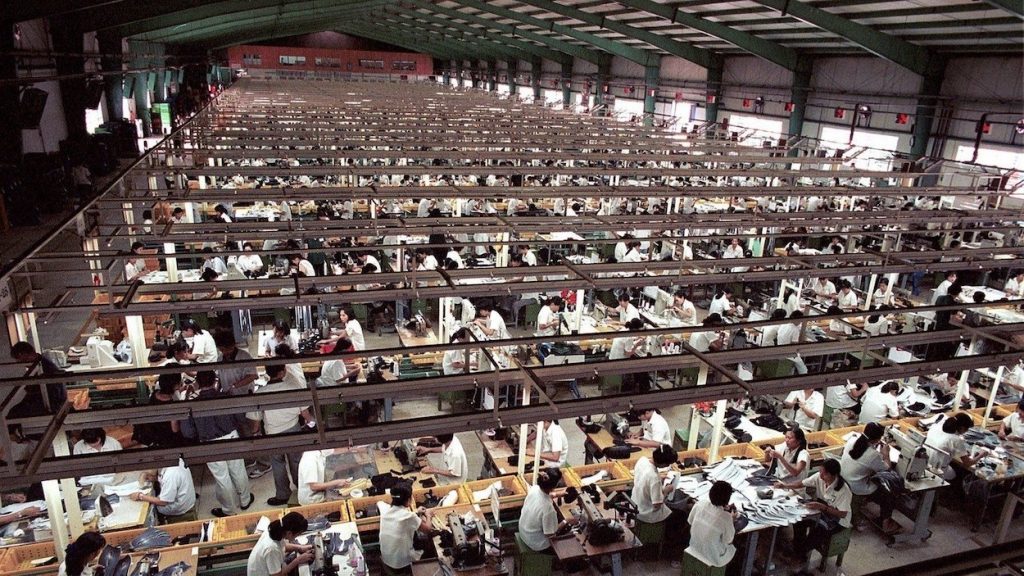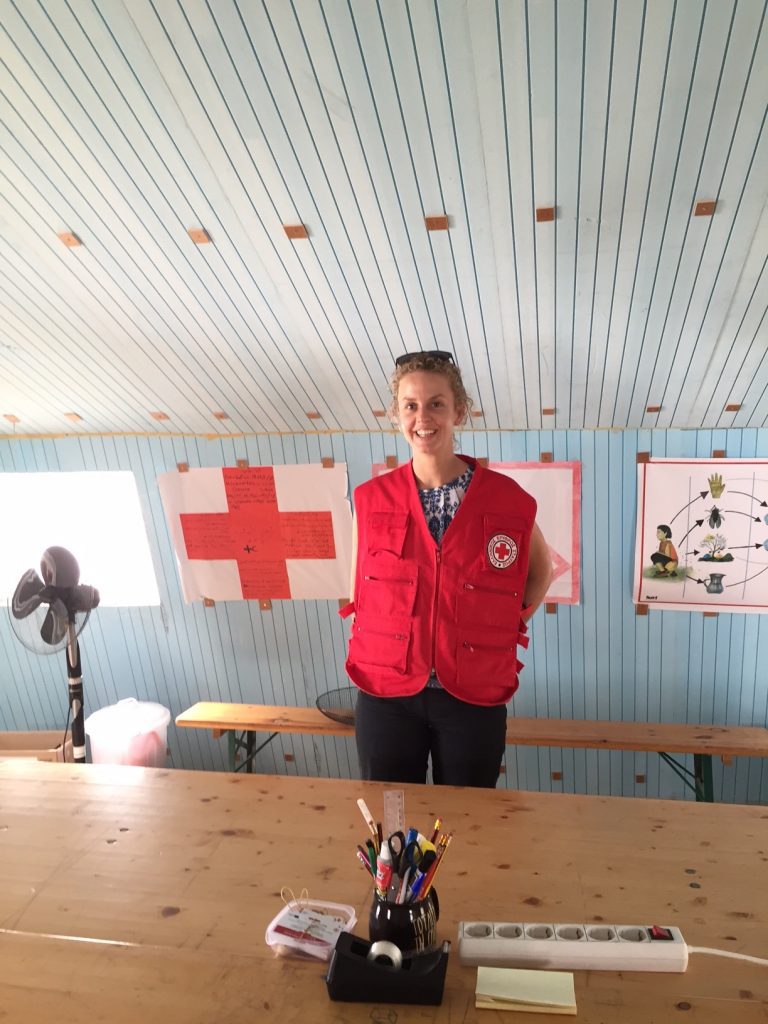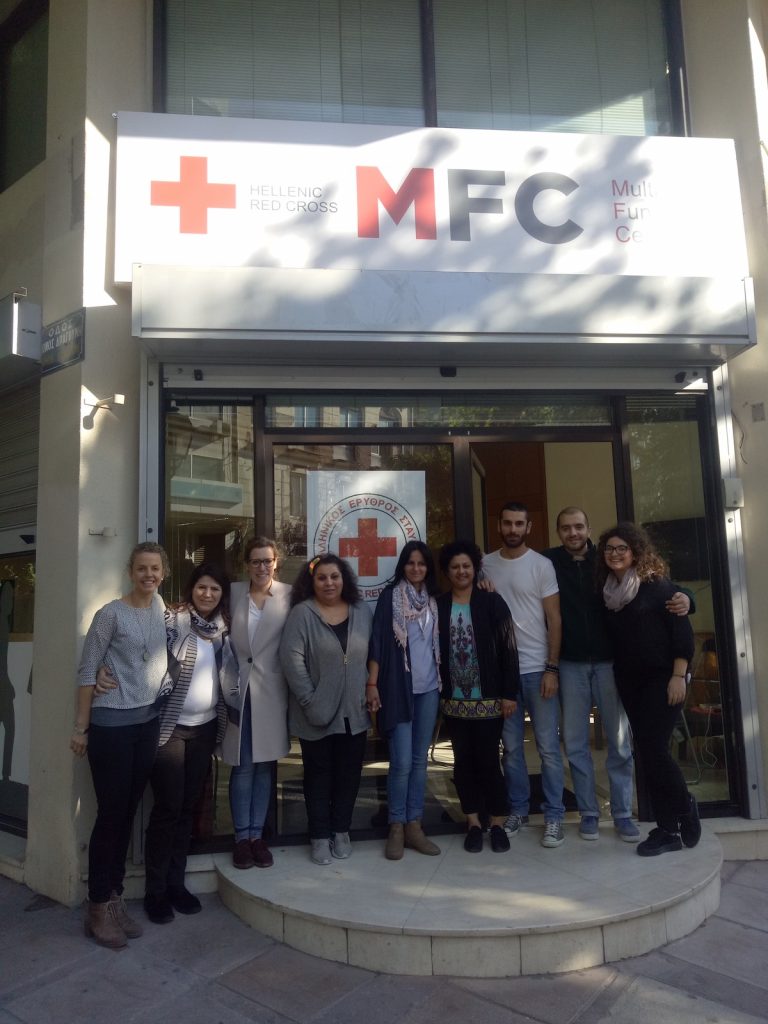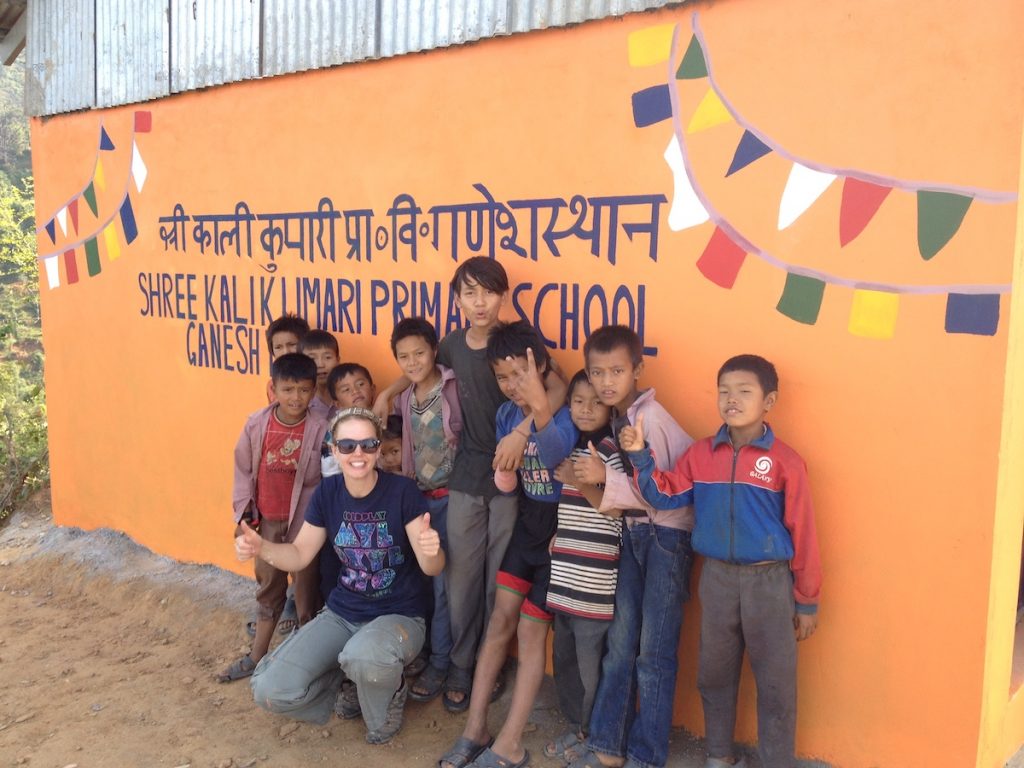Kyla Raby on How to Combat Fashion
Made via Modern Slavery
She’s a researcher, anti-slavery advocate and practitioner. Having previously volunteered in Uganda and Kenya, Adelaide woman Kyla Raby headed off to work with the Red Cross in the Tiwi Islands, soon after completing her undergraduate studies. Since then she has held many different roles with the Red Cross in Australia, the UK, Greece and Bangladesh. Kyla’s work mainly involved supporting victims of human trafficking, refugees and asylum seekers. She is currently balancing her new role as a Mum with her PhD research while on leave from her “day job” with the Red Cross. We asked Kyla about how she came to be interested in working against and researching modern slavery as well as becoming a passionate advocate for buying second-hand clothing. The True Cost documentary had a lot to do with her future choices…

“I can’t say I have ever been that interested in ‘fashion’ to be honest, but I guess like many people I definitely used to love to shop! When I first travelled to the UK as a 19 year old, I remember entering Primark for the first time and thinking I was in heaven…. SO MUCH CHEAP CLOTHING!”
“My shopping habits fundamentally changed after watching The True Cost. To begin with, I swore off all new clothes for 12 months and my sister joined me in the quest to see if we could do it. I ended up buying a few new things like underwear and swimwear during that year but nothing else and it was relatively easy to do. Since then, I still rarely buy new items of clothing and instead source most of my wardrobe through op shops or clothing exchanges, recycling and reusing whenever possible.”
“…over $125 billion of fashion garments created via some form of modern slavery are imported annually to G20 countries. These countries, which also account for 80 percent of world trade, include the United States, Australia, Canada, France, Italy, Japan and the United Kingdom.”
-Global Slavery Index Report 2018
“I am active in engaging with government processes related to modern slavery and have made written submissions to government enquiries both here in Australia and New Zealand. I also support any NGO campaigns related to preventing and reducing modern slavery.”
“There have been several parliamentary inquiries that recommended something needs to be done to address Australia’s role in the proliferation of modern slavery in global supply chains.”
“Prior to the last election, South Australian Senator Rex Patrick was a fantastic advocate for addressing Australia’s role in modern slavery. In 2021, he introduced something called the Forced Labour Bill, which banned the import of goods into Australia that have been made with forced labour. The Bill passed the Senate but has yet to be introduced into the House of Representatives.”

“I hope that my research helps to draw attention to the weaknesses of the current law we have, which aims to prevent modern slavery in the supply chains of Australian businesses, the Commonwealth Modern Slavery Act. I hope that this could lead to more effective laws that actually help reduce the amount of products and services sold in Australia that are made with slavery. In particular, the Act places too much responsibility on consumers. There is definitely a much greater role consumers can play in overall anti-slavery efforts, however I don’t believe the onus should be put on consumers to influence ethical business practice, as it is within the Modern Slavery Act.”
“Essentially, the Act doesn’t actually do anything except for ‘start conversations’ about modern slavery. For example, it doesn’t make it a crime for a business to engage contractors within their operations or supply chains who exploit their workers. It doesn’t make businesses prove that their goods and services are slavery free. It doesn’t ban products that are known to be likely to be made with slavery, or those imported from regions of the world that are at known risk of using forced labour.
“…since the last estimates were done in 2016, there has been an increase of 10 million more people worldwide in a situation of slavery, up from 40 million to 50 million. “
_ Kyla Raby referring to recent Global Estimates in 2022
It relies on the idea that business transparency will lead to more ethical business practice. It makes it mandatory for big businesses to publish public statements about their efforts to reduce modern slavery. But it then relies on consumers and investors reading these statements and choosing to support only those companies ‘doing the right thing’, to create a ‘race to the top’ where businesses compete for their support. There are endless reasons why this is unrealistic and illogical. So far the legislation has not been found to have had any real effect on preventing or reducing modern slavery.”

“There are no financial or criminal penalties that can be applied to businesses not meeting requirements of the Act. This is one of the main criticisms of the legislation. The government has also not released any information to-date about non-complying companies, so it’s not publicly known who they are. I think that in order to really stop the exploitation of workers who make our clothes, what is required is a completely different approach to regulating modern slavery in global supply chains than the Act takes.”

“I think the single biggest thing consumers can do to combat modern slavery in fashion and the environmental impacts of so much clothing waste is to massively reduce their consumption. Instead of buying new clothing and essentially contributing to a ‘demand’ for that product, reduce, recycle and reuse. When you do need something new, invest in items you are certain you know how and by whom they are made and extend their life as long as possible. We can all be active citizens by engaging in the processes that govern us, and communicate to our political leaders what is important to us. If you feel Australia should be doing more to prevent and reduce modern slavery, tell your local MP, writing to the Prime Minister, join an NGO campaign, there are plenty of ways to make your concerns heard!”

Kyla Raby will be a guest panellist at the City of Norwood’s A Day of Fashion, on 15 October. where we discuss the true cost of fashion “In conversation with…”
